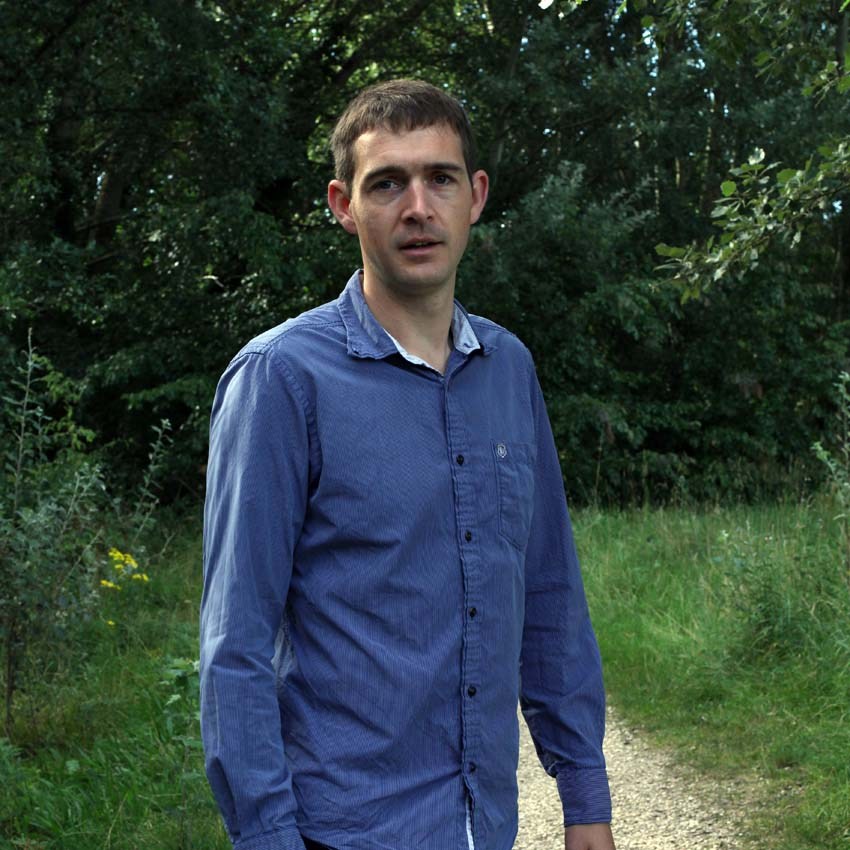
This episode currently has no reviews.
Submit Review- Publisher |
- Michael White
- Media Type |
- audio
- Categories Via RSS
- Publication Date |
- Dec 19, 2018
- Episode Duration |
- 00:52:43
https://forecastpod.files.wordpress.com/2018/12/episode_24_ed_hawkins.mp3
Maybe once a year I have a nightmare that I’m back in grad school, grinding out an interminable PhD in some entirely new field. Ed Hawkins from the National Centre for Atmospheric Science actually did head back for a new degree and a new career, but, luckily for climate science, it seems to have been more of a dream than a nightmare.
 Credit: Gautier Deblonde
Credit: Gautier Deblonde
Ed got his start in the Master of Physics program at Oxford, where the intense, small-group discussion and examination was pretty intense, to put it mildly: “If you hadn’t done enough that week you got found out, certainly”.
Straight after Oxford, Ed moved on to a PhD in astrophysics from the University of Nottingham. There, Ed worked on minor topics, you know, like mapping out the entire universe.
Prior to prepping for the interview, I was completely unaware of Ed’s first career, but it turns out that much of this work on the 2dF Galaxy Redshift Survey is massively cited, with five papers with more than 300 citations in Web of Science. Ed has an H-index of 13 from his first career alone!
But the topics in astrophysics proved to be too divorced from immediate societal relevance, and at the time Ed wasn’t too sure about academia in general. So it was off to the IT industry for a year.
Happily for us, IT proved a bit of a bore, and Ed’s interests drifted towards weather, climate and something more tangible than astrophysics. As Ed says, “I wanted my research, if I was going to pursue a career, to be more directly relevant to the real world and policy making”. That’s when he returned for a Master’s degree from the University of Reading.
Ed is now well-known for his work on model processes, uncertainty and predictability, with specific work on a wide range of topics like the the Atlantic Multidecadal Oscillation, sea ice, temperature vs. precipitation, extremes, and regional climate change.
As is the case in many of the Forecast interviews, contextualizing the importance of internal climate variability emerges as a major theme, to be explored, at least in part, through large, perturbed initial condition ensembles.
Sea ice is a classic case in which one could easily mistake a short observational record as a forced trend. “It’s a very tricky problem to try and untangle all of these factors, and try and understand what it is the underlying trend, due to increasing global temperatures and what is due to variability on top of that trend”.
But untangling the answer is at the heart of providing policy-relevant science, and Ed is focusing on using observations to query whether or not models are simulating the correct processes. Recovering old weather data, too, provides huge opportunities to contextualize modern processes, extremes especially.
Another classic example of the untangling process is the hiatus/pause/slow down — a period of reduced global warming beginning ~ 1998, ending in 2015. In AR5, the IPCC authors realized that observations were on the low end of model simulations, presenting an apparent challenge to the modeling community. Ed talks me through how the initial debates led to better — and fairer — model-data comparisons and improvements in the observational reconstructions. Now, the community appears to be moving towards more of a consensus that the initial mismatch is, when done properly, not nearly as serious as initially thought.
That, however, is not all. Oh no. Ed also produced the massively viral spiral graphic on climate change, runs a terrific lab-book.ac.uk/">climate blog, maintains an active twitter presence (@ed_hawkins), advocates for the end of rainbow color scales (seconded!), promotes civility in climate discussions, studies the history of climate science, and dines with the climate skeptic community (at least once).
This episode currently has no reviews.
Submit ReviewThis episode could use a review! Have anything to say about it? Share your thoughts using the button below.
Submit Review